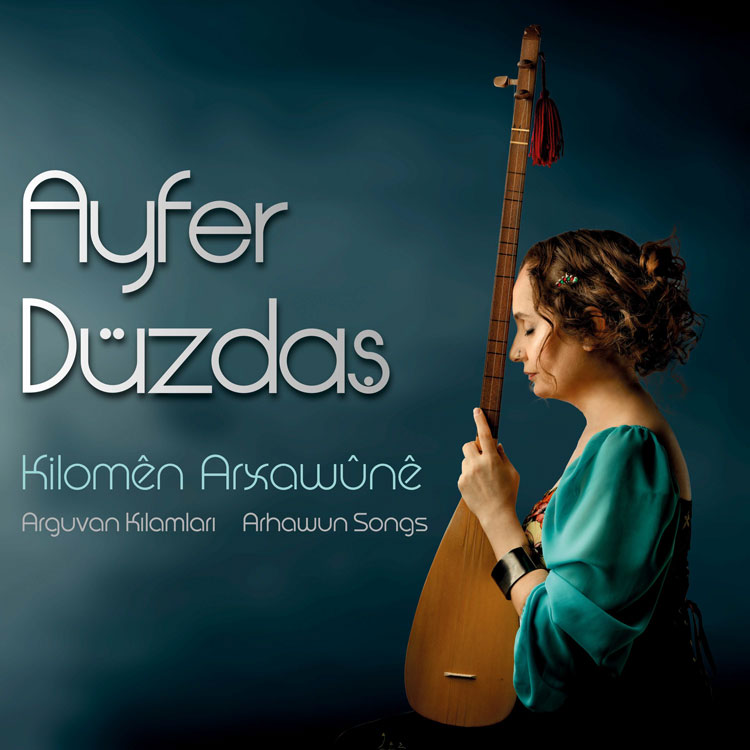Ayfer Düzdaş – Kilomên Arxawûnê (self-release, 2023)
In her latest self-released album titled Kilomên Arxawûnê, Ayfer Düzdaş delves into the rich world of Kurdish Kurmanji folk songs, famously recognized as “Malatya Arguvan Folk Songs” and characterized by the distinct “Arguvan Dialect” and “Arguvan Style.” This album stands as a significant contribution to their cultural heritage.
Ayfer Düzdaş embarked on a mission to compile and share the wealth of Kurdish compositions she gathered during her journeys through Malatya’s Arguvan, Yazıhan, Kürecik, Hekimhan districts, and the surrounding villages between 2012 and 2014. Her exploration led her to over 15 villages and various provincial and district centers, resulting in the recording of more than 90 Kurdish Kurmanji works from 18 different sources. Many of these compositions, unveiled for the first time, contain cultural gems with universal appeal.
With dedication, Ayfer Düzdaş has preserved the endangered Arguvan songs, preserving them as cultural treasures in the annals of music history. Through this endeavor, she ensures the transfer of these collected and recorded cultural values to future generations, encapsulating them as an oral history study within an album.
The melodies of Arguvan songs resonate with the shared experiences of village and nature communities. They encompass themes of love, homeland, loss, and separation, woven into the fabric of life’s rhythms—be it tilling fields, venturing into the hills, tending to herds, or expressing sorrow in times of loss.
These melodies predominantly take on the distinct musical motifs of “Dede Motive,” “Hüseyni,” “Uşak,” and “Garip Hicaz.” The folk songs from Malatya vary, blending both unmeasured and broken styles. Notably, the rituals of semah (whirling) and cem (communal prayers) are accompanied by the chanting of sayings and Duwaz-ı Imams, reflecting the influence of Alevi philosophy. This particular form is often referred to as the “Dede Motive.” However, due to language assimilation, a significant portion of these idioms has been adapted into Turkish.
The “Dede Motive” is rendered using the three-stringed Dede Guitar, employing a unique playing style known as claw or tapping, characterized by a twelve-fret, non-pitched technique.
In addition to the Dede guitar, the musical landscape in Malatya features instruments such as the baglama, cura, clarinet (Arapgir), and, albeit rarely, the violin. Drum-zurna and kaval, played by shepherds, are also commonplace. Drum-zurna, or drum-clarinet, often takes center stage at weddings, infusing joy and festivity into these celebrations.
Musicians: Caner Yılmaz on classical guitar, oud, percussion, malmata non-bowed string, percussion, vocals, tambur, and cello; Emre Ay on classical guitar, electric guitar; Olcay Bozkurt on bass; Uygar Palabıyık on classical guitar; Selami Gördeli on fiq (a traditional Turkish string instrument), clarinet; Erdi Arslan on clarinet; Kerem Can Aslan on percussion; Onur Gügercinoğlu on violin.


